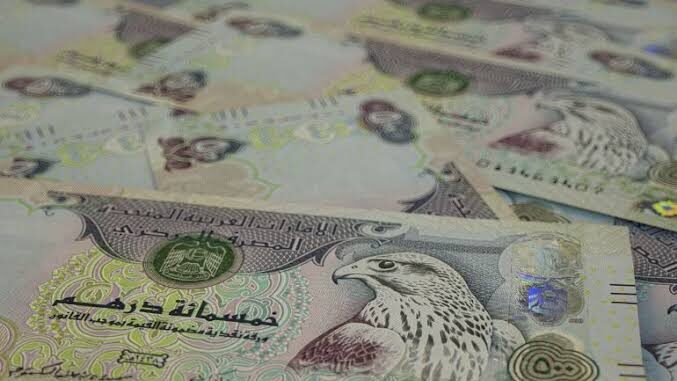Ensuring compliance with cash-carrying regulations when traveling between Dubai and India is crucial to avoid penalties and legal issues.
This guide outlines how much cash you can carry, key regulations, and practical advice to ensure a hassle-free journey.
Why Do Governments Limit How Much Cash You Can Carry?
When traveling internationally, governments set limits on how much cash individuals can carry to prevent illicit activities such as money laundering and ensure economic stability.

Both the UAE and India have specific rules for cash transportation. Let’s explore these regulations in detail.
How Much Cash Can You Carry Out of Dubai?
In the UAE, travelers must declare how much cash they are carrying if it exceeds AED 60,000 or its equivalent in another currency. This rule applies to:

- Cash
- Traveler’s checks
- Other negotiable instruments
If you are carrying more than AED 60,000, you must fill out a declaration form at customs when leaving the country. This applies to both tourists and residents.
How Much Cash Can You Bring into India?
India enforces strict rules regarding how much cash can be brought into the country. According to Indian customs regulations:
- Indian Rupees: You can carry up to ₹25,000 in Indian currency.
- Foreign Currency: You can bring in up to USD 5,000 in cash or USD 10,000 in traveler’s checks (or a combination of both) without declaring it.
- Exceeding Limits: If you are carrying more than USD 5,000 in cash or USD 10,000 in total, you must declare the amount to customs upon arrival in India.
What to Consider When Carrying Large Amounts of Cash
Understanding how much cash you can carry is essential, but it’s equally important to consider security, conversion rates, and alternatives to carrying large sums. Below are key factors to keep in mind:
1. Declaration Process
If you are carrying cash above the allowed limit, you must:
- Fill out a customs declaration form
- Provide details about the source and purpose of the money
Failing to declare excess cash may result in fines, confiscation of the money, or even legal action.
2. Security Tips for Carrying Cash
Carrying large amounts of cash can be risky. To stay safe:
- Use a money belt or anti-theft bag.
- Avoid displaying cash in public places.
- Distribute your cash across multiple secure locations, such as a wallet, money belt, or carry-on bag.
3. Currency Conversion
Exchange your cash at authorized money exchange centers or banks for the best rates. Avoid unauthorized dealers to reduce the risk of counterfeit currency or poor exchange rates.
Alternatives to Carrying Large Amounts of Cash
Instead of carrying large sums of cash, consider these safer alternatives:
a) Bank Transfers
International bank transfers are a secure way to send money directly to an account in India, eliminating the need to carry physical cash.
b) Prepaid Travel Cards
Load a prepaid card with foreign currency and use it for transactions in India. These cards are convenient, safe, and widely accepted.
c) Digital Payment Platforms
Platforms like PayPal or local e-wallets are excellent for transferring money electronically. Ensure that the recipient in India can access the selected platform.
d) Traveler’s Checks
Though not as common as they once were, traveler’s checks are a secure option since they can be replaced if lost or stolen.
Also Read : Fuel Your Racing Fever at Jack’s Garage
Penalties for Not Declaring How Much Cash You Are Carrying
Non-compliance with cash declaration rules can lead to serious consequences in both countries, including:
- Fines
- Confiscation of undeclared money
- Legal proceedings
Both UAE and Indian authorities take violations seriously, so always declare how much cash you are carrying if it exceeds the limits.
Practical Tips for Travelers
To ensure a smooth travel experience between Dubai and India, follow these tips:
- Check the Latest Rules: Currency regulations can change, so always check the current guidelines before traveling.
- Carry Proof of Source: If carrying a large sum of cash, keep documentation like bank withdrawal receipts or salary slips to prove the source of funds.
- Use Secure Travel Bags: Anti-theft bags offer added security for cash and valuables.
- Declare When in Doubt: If you’re unsure whether to declare your cash, it’s better to declare it than risk penalties.
- Distribute Cash Wisely: Don’t store all your cash in one place. Spread it across secure locations to reduce risk.
Real-Life Scenarios: How Much Cash to Declare
Scenario 1: Exceeding the Limit
A traveler leaving Dubai with AED 70,000 must declare it at UAE customs. Upon arriving in India with USD 12,000, they must declare it to Indian customs as well.
Scenario 2: Within the Limit
A traveler carrying AED 50,000 and USD 4,000 does not need to declare how much cash they have since both amounts are below the allowed limits.
Scenario 3: Non-Declaration
A traveler leaving Dubai with AED 80,000 who fails to declare it may face penalties and have their money confiscated. Similarly, failing to declare USD 15,000 in India can result in fines and other legal actions.
Conclusion
Understanding how much cash you can carry when traveling between Dubai and India is essential to avoid fines and legal issues.
Always stay informed about the latest regulations, declare excess amounts when necessary, and consider safer alternatives like bank transfers or prepaid cards.
By following these guidelines, you can travel with peace of mind, knowing you are complying with currency regulations. Whether you’re traveling for business, vacation, or visiting family, careful planning is key to a stress-free experience.
Do follow Uae stories for more updates
e& Market Outside The Box Returns: Exciting Surprises Await!














